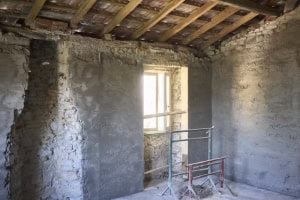Direct Bari to New York Flights Begin in 2025
Starting June 3, 2025, Neos Airlines will launch its highly anticipated direct flights from Bari to New York, offering a new gateway between Southern Italy and the United States. This exciting development strengthens Puglia’s connectivity. It also opens doors to expanded tourism, business and investment opportunities as well as cultural exchanges.
To discuss your situation, get in touch for a free consultation, or click here to get all our FREE guides for foreigners planning to renoveting, buy, sell or live in Italy.
Direct Bari to New York Flights: A New Era of Connectivity
 The direct route between Bari’s Karol Wojtyla Airport and New York JFK will run weekly until October 15, 2025.
The direct route between Bari’s Karol Wojtyla Airport and New York JFK will run weekly until October 15, 2025.
Operated on board the Boeing 787-9 Dreamliner, with 355 seats. The flights offer two service classes: Premium and Economy.

Outbound Flight:
Departs Bari Wednesdays at 11:30 AM, arriving in New York at 1:50 PM local time.
Inbound Flight:
Leaves New York Tuesdays at 4:00 PM, landing in Bari at 8:00 AM Wednesday.
Puglia’s Strategic Leap Forward
Antonio Maria Vasile, President of Aeroporti di Puglia, emphasized the significance of this new connection, stating, “This flight is a monumental step for Puglia, marking the region’s increasing accessibility on the global stage. Moreover, it represents the beginning of an era of enhanced connectivity, where Puglia becomes a hub for international travel.” Furthermore, the Bari-New York flight is an integral part of a broader strategy aimed at positioning Puglia as a top-tier destination for international tourism and commerce. By fostering such connections, the region takes yet another crucial step toward solidifying its role on the global map.
Direct Bari to New York Flights: Why This Route Matters
The Bari-New York route is more than just a convenient flight – it’s a transformative connection fostering cultural exchange, economic growth, and community ties.
Boosting Tourism and Business
This direct connection positions Puglia as a premier destination for American tourists. Travelers can now easily explore the region’s historic towns, indulge in its culinary excellence, and relax amidst its breathtaking landscapes. For businesses, the route facilitates opportunities for trade and collaboration, strengthening economic ties between Italy and the U.S.
Puglia also presents a burgeoning real estate market for foreign investors. The ease of travel opens doors for Americans to explore opportunities in owning property – whether it’s a countryside villa, a charming townhome, or a modern coastal retreat.
Serving the Italian-American Community
With more than 18 million Italian-Americans in the United States, many with roots in Southern Italy, this flight serves as a direct bridge to rediscover heritage, reconnect with family and rekindle ties to ancestral traditions.
Strengthening Regional Development
Carlo Stradiotti, CEO of Neos, underscored the broader impact of the Bari-New York connection: “With this route, we’re not just connecting Bari to New York; we’re creating an opportunity for growth that spans leisure, business and cultural exchanges.”
Expanding Connections Between Italy and North America
The new Bari-New York route is part of a broader effort to enhance air travel links between Italy and North America. It joins Neos’ other established connections, including:
Milan Malpensa to New York: Operating three times weekly since 2021. Milan to Toronto: Introduced in April 2023. Palermo to New York: A seasonal service running from June to October.
These routes collectively strengthen Italy’s presence in the global aviation network, offering travelers greater convenience and more options to explore both regions.
Puglia’s Vision for the Future
Regional leaders are celebrating this milestone as a testament to Puglia’s strategic investments. Michele Emiliano, President of the Puglia Region, sees this as a transformative moment: “This is a dream taking flight – uniting Puglia with the world and showcasing our culture, traditions and potential.”
Beyond tourism, the flight represents a broader ambition to further develop Puglia as an economic, cultural and social hub in the Mediterranean.
What Direct Bari to New York Flights Mean for Travelers
With direct Bari-New York flights, Italian and American travelers now enjoy unique opportunities to explore vibrant destinations and cultures.
For Americans, Puglia offers enchanting olive groves, Baroque architecture, breathtaking coastlines and showcases a rich blend of history and beauty.
Meanwhile, Italians can experience New York’s dynamic energy, a vibrant hub celebrated for its art, commerce and culture.
These flights open endless possibilities for travel, connection, and inspiration.
How to Book
Tickets for the Bari-New York route are available on:
– neosair.it for Italian travelers.
– neosair.com for U.S.-based travelers.
To discuss your situation, get in touch for a free consultation, or click here to get all our FREE guides for foreigners planning to renoveting, buy, sell or live in Italy.
Finally …
With direct Bari-New York flights, Italian and American travelers now enjoy unique opportunities to explore vibrant destinations and cultures.
These flights open endless possibilities for travel, connection and inspiration. Additionally, it makes the prospect of owning a piece of Puglia’s charm more accessible than ever before. Whether you envision a home nestled among the region’s iconic olive groves or a picturesque seaside retreat along the stunning Adriatic or Ionian coasts, now is an ideal time to explore the possibilities of investing in Italian property.
At De Tullio Law Firm, we specialize in Italian property, family, and inheritance law. With over 55 years of experience, we are dedicated to ensuring that Italian property purchases are both safe and legally sound. Contact us today for a free preliminary consultation, and let us guide you in turning your dream of owning Italian property into a reality. Click here to get started.
You may also like our Guide to Buying Property in Italy.










